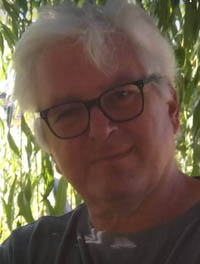
https://clubofamsterdam.com/Ncontentimages/journal%202022/journal%20243/journal243.htm

Website statistics
clubofamsterdam.com
January 2021 – April 2022:
Visits: 639,000
Visitors: 128,000
Peachie Dioquino-Valera: ” Indigenous Spiritualist Knowledge is a way of articulating the tribal protected areas factored in the realm of natural resource management. This is why Indigenous Peoples’ explicit and implicit knowledge is said to be the key to solving the Climate Crisis, Biodiversity Loss, and even the growing violence and greed spurred by the capitalistic and extractive global mindset. “
Jason Edward Lewis: “The concept of the future imaginary seeks to capture the ways people imagine the futures of their societies. In Indigenous contexts we often refer to the seventh generation to keep us mindful of how our actions in the present will affect our descendants.”
Drew Hayden Taylor: “I’ve spent too many years explaining who and what I am repeatedly, so as of this moment I officially secede from both races. I plan to start my own separate nation. Because I am half Ojibway and half Caucasian, we will be called the Occasions. And of course, since I’m founding the new nation, I will be a Special Occasion.”
Indigenous Peoples at the United Nations
“Indigenous peoples are inheritors and practitioners of unique cultures and ways of relating to people and the environment. They have retained social, cultural, economic and political characteristics that are distinct from those of the dominant societies in which they live. Despite their cultural differences, indigenous peoples from around the world share common problems related to the protection of their rights as distinct peoples.
Indigenous peoples have sought recognition of their identities, way of life and their right to traditional lands, territories and natural resources for years, yet throughout history, their rights have always been violated. Indigenous peoples today, are arguably among the most disadvantaged and vulnerable groups of people in the world. The international community now recognizes that special measures are required to protect their rights and maintain their distinct cultures and way of life.”




Customer Reviews
Thanks for submitting your comment!